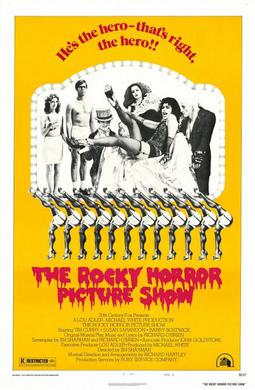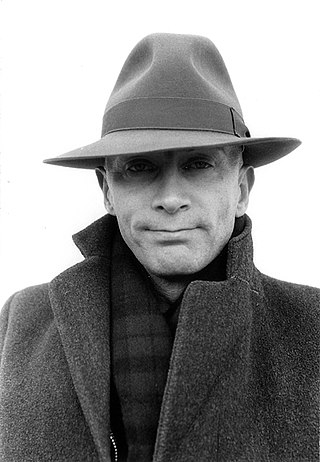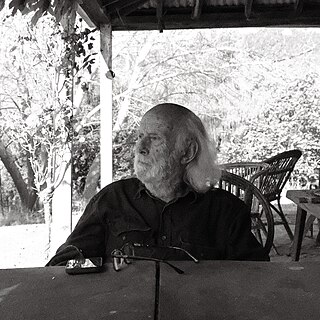Related Research Articles

The Rocky Horror Picture Show is a 1975 independent musical comedy horror film produced by Lou Adler and Michael White, directed by Jim Sharman, and distributed by 20th Century Fox. The screenplay was written by Sharman and Richard O'Brien, who also played the supporting role Riff Raff. The film is based on the 1973 musical stage production The Rocky Horror Show, with music, book, and lyrics by O'Brien. The production is a tribute to the science fiction and horror B movies of the 1930s through to the early 1960s. The film stars Tim Curry, Susan Sarandon, and Barry Bostwick. The film is narrated by Charles Gray, with cast members from the original Royal Court Theatre, Roxy Theatre, and Belasco Theatre productions, including Nell Campbell and Patricia Quinn.

The Rocky Horror Show is a musical with music, lyrics and book by Richard O'Brien. A humorous tribute to various B movies associated with the science fiction and horror genres from the 1930s to the early 1960s, the musical tells the story of a newly engaged couple getting caught in a storm and coming to the home of a mad transvestite scientist, Dr Frank-N-Furter, unveiling his new creation, Rocky, a sort of Frankenstein-style monster in the form of an artificially made, fully grown, physically perfect muscle man complete "with blond hair and a tan".

"Time Warp" is a song featured in the 1973 rock musical The Rocky Horror Show, its 1975 film adaptation The Rocky Horror Picture Show, and the 2016 TV production The Rocky Horror Picture Show: Let's Do the Time Warp Again. The song title comes from a dance performed during the chorus of the song.

Gina Riley is a retired Australian actress, writer, singer and comedian, known for portraying Kim Craig in the television series Kath & Kim, and for her work in musical theatre.

Richard O'Brien is a British-New Zealand actor, writer, musician, and television presenter. He wrote the musical stage show The Rocky Horror Show in 1973, which has since remained in continuous production. He also co-wrote the screenplay along with director Jim Sharman for the film adaptation, The Rocky Horror Picture Show (1975), and appeared on-screen as Riff Raff. The film became an international success and has received a large cult following. O'Brien co-wrote the musical Shock Treatment (1981) and appeared in the film as Dr. Cosmo McKinley.
Shock Treatment is a 1981 American musical comedy film directed by Jim Sharman, and co-written by Sharman and Richard O'Brien. It is a follow-up to the 1975 film The Rocky Horror Picture Show. While not an outright sequel, the film does feature characters from the previous film, most portrayed by different actors, as well as several Rocky Horror actors in new roles. The film stars Jessica Harper as Janet and Cliff DeYoung in a dual role as Brad and the film's main antagonist Farley Flavors, with O'Brien and Patricia Quinn playing sibling character actors, Cosmo and Nation McKinley, and Nell Campbell playing Nurse Ansalong.
Helmut Bakaitis is a German-born Australian director, actor and screenwriter and playwright. He is best known for his role in The Matrix Reloaded and The Matrix Revolutions as the character the Architect.
Harry Maurice Miller was a New Zealand Australian promoter, publicist and media agent.

Matthew Carroll OBE is an Australian film and TV producer. He is best known for producing films since the early 1970s including Breaker Morant, Storm Boy and Sunday Too Far Away. Later, he went into television production, producing the television series G.P. for the Australian Broadcasting Corporation (ABC). He was a principal in the production house Roadshow, Coote and Carroll which produced television shows for Australian and international audiences.
Reginald Dawson Livermore is an Australian actor, singer, theatrical performer, designer, director, lyricist and writer and former television presenter.
James David Sharman is an Australian director and writer for film and stage with more than 70 productions to his credit. He is renowned in Australia for his work as a theatre director since the 1960s, and is best known internationally as the director of the 1973 theatrical hit The Rocky Horror Show, its film adaptation The Rocky Horror Picture Show (1975) and the film's follow-up, Shock Treatment (1981).
Kerry Kathleen Fitzpatrick known as Kate Fitzpatrick, is an Australian television, film, and theatre actress.
The Old Tote Theatre Company (1963–1978) was a New South Wales theatre company that began as the standing acting and theatre company of Australia's National Institute of Dramatic Art (NIDA). It was the predecessor to the Sydney Theatre Company. The Old Tote was one of the leading Australian theatre companies.
Brian Thomson is an Australian theatre, opera and film designer. He has been active in Australian stage design since the 1970s.

Jesus Christ Superstar or Jesus Christ Superstar – Original Australian Cast Recording is an album released in late 1972 on MCA Records. Jesus Christ Superstar is a rock opera created by Tim Rice and Andrew Lloyd Webber in 1970. The earliest Australian version was staged from May 1972 to February 1974. This album features Trevor White, Jon English and Michele Fawdon. Together with other cast members, they performed vocals for a studio recording. It was produced by Patrick Flynn, the show's musical director and a conductor for Opera Australia. The album peaked at No. 17 on the Go-Set Albums Chart in June 1973, while it reached No. 13 on the Kent Music Report and remained on its charts for 54 weeks. It appeared in the top 100 on the 1974 End of Year Albums Chart. In May 1973, the album was awarded a gold record for sales of 50,000 albums.
Summer of Secrets is a 1976 film directed by Jim Sharman and starring Arthur Dignam, Rufus Collins, and Nell Campbell.
The Christian Brothers is a play by Australian writer Ron Blair first performed in 1975. It is a one-man play about a teacher at a Christian Brothers school. It was based on Blair's experience of studying at the Christian Brothers school in Lewisham, Sydney and has come to be regarded as an Australian classic. Peter Carroll performed in the original Nimrod Theatre production, which was directed by John Bell and designed by Larry Eastwood. The play has been revived a number of times, including the 1991 production at the Q Theatre, Penrith with Neil Fitzpatrick, directed by Helmut Bakaitis.
Big Toys is a 1977 Australian play by Patrick White. It was his first play in 14 years.

The Last Impresario is a 2013 documentary film about prolific British theatre impresario and film producer Michael White. The film was directed by Gracie Otto, and made its world premiere at the BFI London Film Festival in October 2013, where it was positively received by critics.
Jane Harders is an Australian actor. She has appeared in films, on television and in plays and musicals. She played Janet in the original Australian production of The Rocky Horror Show in 1974.
References
- 1 2 3 Andrew Pike and Ross Cooper, Australian Film 1900–1977: A Guide to Feature Film Production, Melbourne: Oxford University Press, 1998 p. 263
- 1 2 David Stratton, The Last New Wave: The Australian Film Revival, Angus & Robertson, 1980 pp. 160–161
- ↑ Robyn Anderson & Sue Adler, "Jim Sharman", Cinema Papers, March–April 1979 p. 269